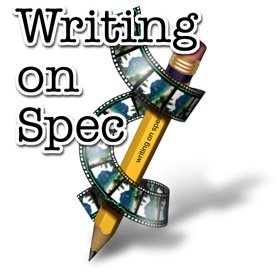But I Thought I Was Unique?
So I'm listening to Sam and Jim's podcast (yeah, it's really old) and they were talking about how what Hollywood wants is the same but different and how that different piece is your unique point of view.
I've heard it and read it a million times. There isn't any new stories (and there aren't) it's the new *unique* slant that you put on it that makes it fresh. It's what we're all told Hollywood is looking for and we just take it and run with it. Instead, we should be asking ourselves exactly what does that mean?
Unique means what? Let's see what dictionary.com has to say:
–adjective
1. existing as the only one or as the sole example; single; solitary in type or characteristics: a unique copy of an ancient manuscript.
2. having no like or equal; unparalleled; incomparable: Bach was unique in his handling of counterpoint.
3. limited in occurrence to a given class, situation, or area: a species unique to Australia.
4. limited to a single outcome or result; without alternative possibilities: Certain types of problems have unique solutions.
5. not typical; unusual: She has a very unique smile.
–noun
6. the embodiment of unique characteristics; the only specimen of a given kind: The unique is also the improbable.
Well, let's really think about what that word means *together* with what it is we're trying to achieve as storytellers.
As a storyteller you are trying to engage mass audiences. The most effective stories do what? Anybody? Right - they make the audience feel like they have something in common with the main character. A bond. Something that's (is it coming to you yet?) - something that's definitely not unique.
While I'm sure there are exceptions all over the place, I believe this sort of language stems from people that do not understand writing and are reaching for words to communicate what they want - and to try and verbalize what it is they believe is missing in what they're reading.
What Hollywood sees is a lot of copying of films that have already been created. People tap into the universal consciousness and write the first thing that comes into their heads and it just rings bells for anybody who reads it. Not knowing what's at fault, you get vague feedback that doesn't really explain the problems with the writing.
Then take these same people and they pass onto the folks sending them material that they want something the same but different. Teachers try and verbalize what that means and come to terms with the only thing that's really different from story to story and that's the order of the words put on the page. It's the writer's own unique habit of the order of their words. We're all subject to the rules of grammar, but we have our idiosyncrasies of speech and this along with the well crafted story are what make stories different from one another.
What they are is very clear about just how un-unique we all are from one another when it all boils down to it. The most compelling story you can write is one that resonates with the most people.
Labels: Screenwriting

0 Comments:
Post a Comment
<< Home